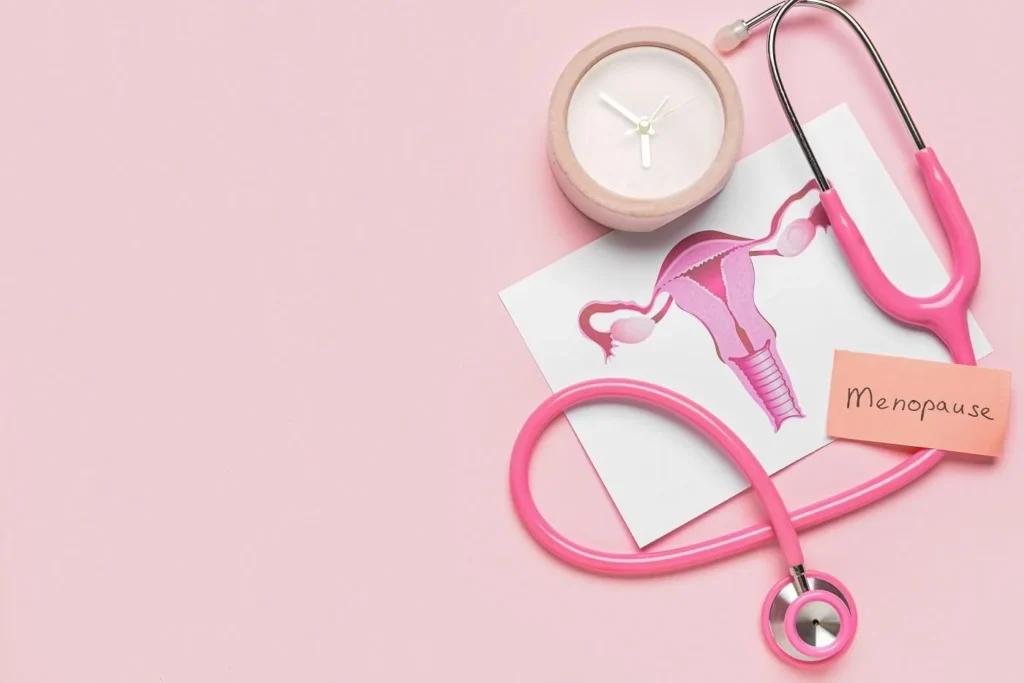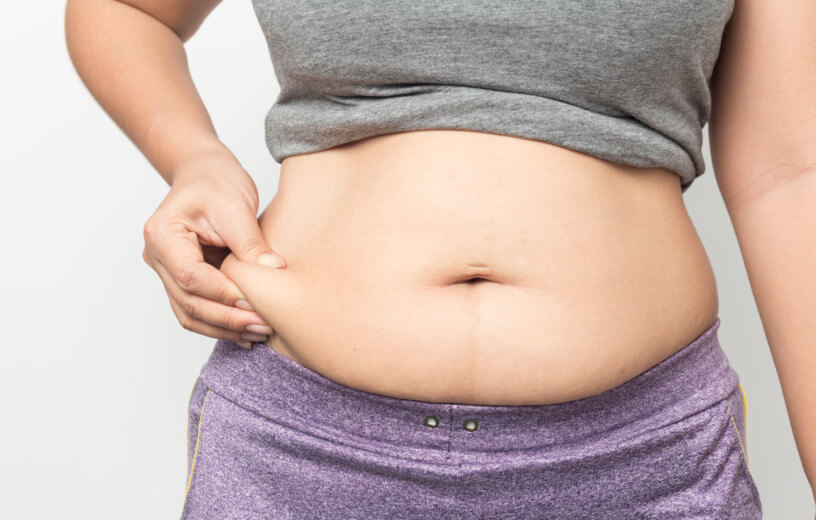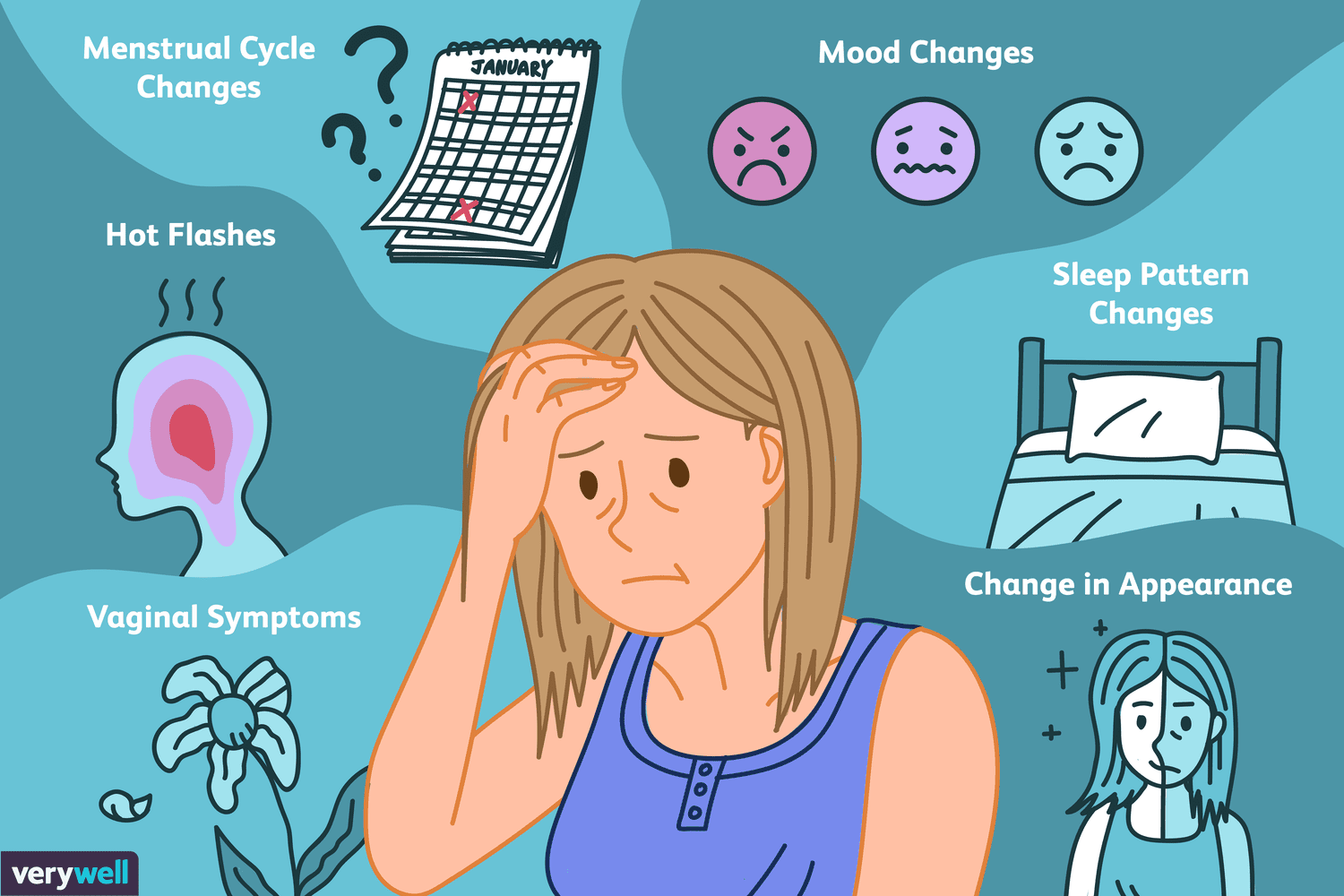
A woman’s menstrual cycle ends during menopause, a normal biological process. Hormonal changes during this phase might cause several symptoms, including weight gain. Menopause-related changes in fat distribution and slower metabolism make it difficult for many women to control their weight. On the other hand, following a certain diet and lifestyle might lessen these impacts and assist with weight loss objectives.
Understanding Menopause and Weight Gain
Two major factors are responsible for Menopause and weight gain they are:
Changes in Hormones
Progesterone and estrogen levels fall during menopause, which changes how the body stores fat. This hormone change frequently results in a slowed metabolism and more belly fat.
Changes in Metabolism
Changes in metabolism brought on by aging can make gaining weight simpler and weight loss more difficult. Age-related decreases in muscle mass have an additional effect on metabolic rate.
The Menopause Diet: Crucial Ideas
To prevent weight gain during menopause, concentrate on the following nutritional guidelines:
- Prioritize entire Foods: Place a strong emphasis on entire grains, fruits, vegetables, lean meats, and healthy fats.
- Make protein a priority: To boost muscle building, eat foods like fish, chicken, tofu, and lentils.
- Incorporate Good Fats: For a feeling of satisfaction, choose foods like avocados, nuts, seeds, and olive oil.
- Watch Your Carbohydrate Intake: Sugars that are refined shouldn’t be substituted for complex carbs like quinoa, sweet potatoes, and brown rice.
- Keep Hydrated: To promote metabolism & general health, sip lots of water throughout the day.

5-Day Meal Plan for Menopause Diet
1st Day
- Breakfast: Greek yogurt with berries and almonds
- Lunch: A salad of grilled chicken, mixed greens, and vinaigrette.
- Dinner: Steamed veggies and baked salmon served with quinoa
2nd Day
- Breakfast: Oatmeal with walnuts and sliced bananas.
- Lunch: Whole-grain bread and lentil soup.
- Dinner: Brown rice and broccoli with stir-fried tofu.
3rd Day
- Breakfast: Omelet with spinach and feta
- Lunch: Turkey wraps with veggies and a whole-wheat tortilla.
- Dinner: Marinara sauce and prawns over zucchini noodles.
4th Day
- Breakfast: Smoothie made with almond milk, protein powder, spinach, and berries
- Lunch: Quinoa salad dressed with cucumbers, chickpeas, and lemon juice.
- Dinner: Skewered lean meat with grilled veggies.
5th Day
- Breakfast: Toast with avocado on whole-grain bread
- Lunch: Bean and veggie chili
- Dinner: Pilaf of quinoa and asparagus with baked cod.
Exercise and Dietary Guidelines
Along with dietary adjustments, make frequent exercise and stress-reduction practices a part of your routine:
- The Value of Frequent Exercise: Try to incorporate aerobic, strength, and flexibility training.
- Stress Management Techniques: To lower cortisol levels and promote general well-being, try yoga, meditation, or deep breathing.

Menopause-Related Supplements for Women
Additionally, several vitamins can help women during menopause:
- Vitamin D and calcium: Lower the possibility of fractures and maintain healthy bones.
- Omega-3 Fatty Acids: Lower inflammation and promote heart health.
- Phytoestrogens: These substances, which are present in foods like soy, may assist in regulating hormone levels.
The Effects of Poor Sleep Quality
In menopause, getting enough sleep is essential since insufficient sleep can cause metabolic disruption and increase cravings. For optimal wellness, create a calming night routine and create a comfortable sleeping environment.
Conclusion
Women can control their weight at this period of life by following a menopause-specific diet focusing on whole foods, lean proteins, healthy fats, and regular physical activity. Supplementation and a focus on getting enough sleep are two other ways to enhance general well-being.
Frequently Asked Questions
Can I customize the meal plan based on my dietary preferences?
Of course! You are welcome to change meals and ingredients to fit your dietary requirements and preferences.
How important is exercise during menopause?
Throughout menopause, exercise is essential for preserving muscle mass, increasing metabolism, and promoting general health.
Are there specific foods to avoid during menopause?
Restrict your intake of processed meals, sugary snacks, and heavy drinking as these might cause hormonal problems and weight gain.
Read This: 7-Day Meal Plan for Ulcerative Colitis
